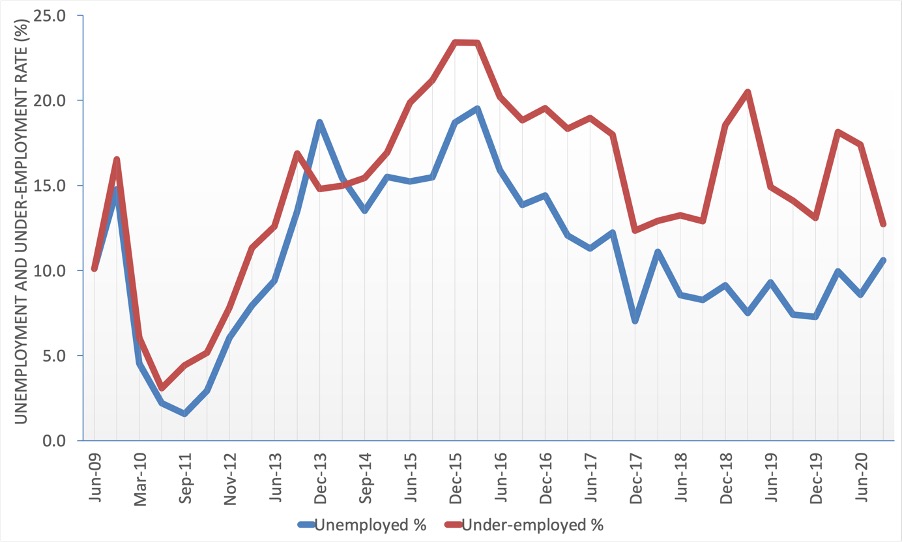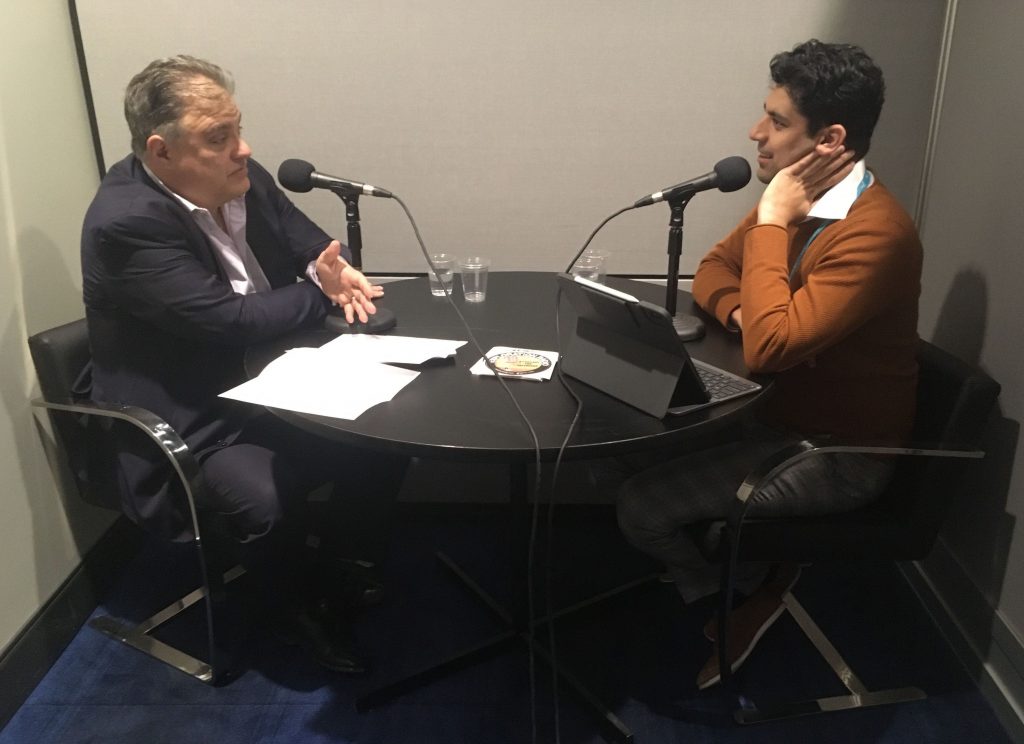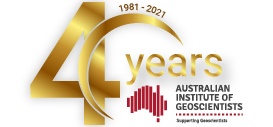The latest instalment in AIG’s Australian geoscientist employment survey is open for submissions. Follow this link to complete the survey.
The third quarter 2020 employment survey showed an increase in the unemployment rate, but a decrease in underemployment amongst self-employed geoscientists, interpreted to reflect the continued impacts of the coronavirus pandemic. This result was considerably better than a number of analysts predicted, a sign of resilience demonstrated by the exploration and mining sector in particular.

Several states continued to be deeply affected by the coronavirus while others demonstrated signs of a recovery, including increases in business activity and easing of travel restrictions both within and between states. How was geoscience employment affected?
The survey typically takes only two or three minutes to complete. You do not need to be an AIG member to contribute. No data that could personally identify respondents is collected. Contributions to the survey are sought from both employed and unemployed geoscientists to ensure the relevance of results. Your completing the survey really helps to make a difference to the standing and knowledge of our profession.
The survey will be open for contributions until Saturday, 19th January, 2021. Every contribution adds to the reliability of the survey results.
Sincere thanks in advance for your support of this survey series.

“…The elephant in the room is that the devaluation of mining companies cannot be explained by the commodity price, instead it is dictated by the self-inflicted mistakes of a commodity boom, and the irresponsible management of these assets.”
“…The elephant in the room is that most of these mining companies believe that the commodity boom will continue to bail out their lackadaisical management and operations.”
“…The elephant in the room is that mining companies, in the past, maximised returns for an ever-rising gold price; optimising project resources for scale rather than payback and returns.”
“…The elephant in the room is that the mining industry has made so many mistakes… in the geological modelling… in community relations… in environmental planning… in capital markets… in communicating with investors and…in overpromising and promoting their business.”
“…The elephant in the room is that the mining industry has lost the trust of the most serious investors, causing an exodus of capital that will not return quickly.”
We often complain that there seems to be a continuous exodus of investors out of mining. We lay the blame for this on a number of things: mining is a risky business and investors just do not get us; the boom and bust cycles make it difficult for these investors to stay around; and the common and ever present excuse, it is all because of the commodity price. Maybe it is time that we recognised that as an industry we have lost the trust of investors because of the failures of our recent past in returning value to shareholders. Maybe what these absent investors are asking for, is the opportunity to make real investments that have a potential to deliver long term returns and not just over-hyped stock plays.
Our guest today is Jonathan Goodman, President and CEO of Dundee Corporation, a company with a long and successful pedigree of investing in the mining and resources industry. He joins us to talk about how as an industry we need to start addressing some of these “elephants in the room”.



The Australasian Joint Ore Reserves Committee (JORC) has released for public submission an online survey seeking comment ahead of the 2021 review and update of the JORC Code.
Submissions are open online at http://www.jorc.org/code-update.asp until 12th February 2021.
The survey is the next step of the review process and will be followed by a summary issues paper to be circulated at the end of April 2021. Further industry feedback will then be sought before finalisation of the updated code.
The JORC Chair , Steve Hunt has noted “We would normally have started the periodic review of the JORC code with public meetings of JORC stakeholders, though as with many things in 2020 this has not been possible due to the COVID pandemic impacts. The survey allows us to start receiving feedback from various stakeholders and to plan for more direct engagement in early 2021 as restrictions ease”.
The Code was last updated in 2012 and there are a number of areas where industry, regulator and public expectations have evolved since the last update. Importantly, the key focus of the Code remains to provide principles based disclosure transparency for investors and potential investors in the mining and exploration markets. The update survey is open to individuals, companies and other stakeholder groups to provide feedback on the JORC Code including their views on specific areas for review, improvement or alignment within the Code.
AIG President Andrew Waltho said “all AIG members involved in mineral exploration, resource evaluation and both mineral resource and ore reserves estimation are strongly encouraged to contribute to the survey”. “Professional geoscientists are critically important stakeholders whose voices need to be heard during the JORC Code review and update process” he said.
“There is unprecedented interest globally, particularly amongst business and securities regulators, in codes of practice for public reporting of exploration results, mineral resources and ore reserves” he said. “Australia is no exception”.
“All AIG members have an obligation to both comply with and contribute to compliance with the JORC Code as a condition of institute membership” Mr Waltho said.
“The JORC Code update provides exploration and mining professionals an opportunity to contribute to the continued development of the code and helping to ensure that JORC and Australia retain a lead role in setting standards of professional practice in this field” Mr Waltho said.
Mr Waltho stressed the importance of the code update process and urged AIG members to contribute, both individually and through their employers prior to the survey closing date of 12th February, 2021.
The survey software allows the survey to be completed in multiple sessions from the same device. The software is multiplatform and optimised for both desktop and mobile. All information provided will be managed and used in accordance with this privacy statement and policy.
I am very pleased to announce that Josh Leigh accepted an invitation to join the AIG Board, filling the casual vacancy created by Wendy Beets’s resignation as an AIG director.

Josh is an early career geoscientist who was one of the driving forces behind the establishment and success of AIG’s National Graduate Group. He brings considerable enthusiasm and personal understanding of issues facing graduates and early career geoscientists that I’m confident will have a positive influence in board deliberations and decisions.
Josh is currently Principal Geologist with EARTH AI, a Brisbane-based explorer.
Please join with me in welcoming Josh to his new role, which he will hold until the next Annual General Meeting.
I would like to sincerely thank Wendy for her contribution to our Institute through her work as a Director and, recently, as Vice President. Wendy will continue as a member of AIG’s Publications Committee which helps to manage AIG’s print and on-line publications, and development of the Institute’s website and social media offerings.
Congratulations Josh!
Andy Wilde has accepted the role of AIG Vice President. Welcome Andy to your expanded role.
Andrew Waltho